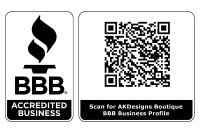First of all, CONGRATULATIONS on your first embroidery machine! It's such a fun and exciting purchase. You have what you need to make personalized gifts, embroider for your family and maybe even start a business.
We get asked a lot of questions, so we thought a page dedicated to new users would be a handy tool. We've included basic information below to help with selecting the right stabilizer, thread, needles, and embroidery designs. Plus, how to applique and so, so much more!
Happy Stitching!
~ Angie
The very basics without any details...
- Stabilizer is KEY ~ if your item isn't stable, the quality of the stitchout will suffer.
- Stabilizer - Poly Mesh & cutaway are best for t-shirts and polos. Tearaway will probably be your "go-to" stabilizer for nearly everything else. Note: add a sheet or 2 if needed to make your item more stable.
- Thread - 40 weight polyester thread is the standard thread.
- Needles - 80/12 sharp & 80/12 ball point will be the most used needles.
- Embroidery designs - pay attention to the details ~ especially size. Don't buy a bunch of designs that you can't use because you don't have the right size hoop.
Basics that our customers wish they had known when they were newbies ~ great tips!
- Thread Color Changes ~ Click HERE
- Thread Tension ~ Click HERE
- Pull Compensation ~ Click HERE
- Density ~ Click HERE
The basics with links to more information than you probably have time to read :)
- How to Download Designs ~ Click HERE to View/Print/Save a step-by-step guide.
- Stabilizer -
- Tips & Tricks Document ~ Click HERE
- Working with Circle & Dots ~ Click HERE
- Thread
- Types of Machine Embroidery Thread ~ Click HERE
- Tips & Tricks Document ~ Click HERE
- Design Thread Colors ~ Click HERE
- Thread Storage ~ Click HERE
- Needles ~ Click HERE
- Embroidery designs
- Choosing Font Sizes ~ Click HERE
- Resizing Designs ~ Click HERE
- Resizing or Modifying Designs with Wide Satin Column Stitches ~ Click HERE
- How to applique
- Applique Instructions - Tutorial ~ Click HERE
- Applique Tip ~ Click HERE

